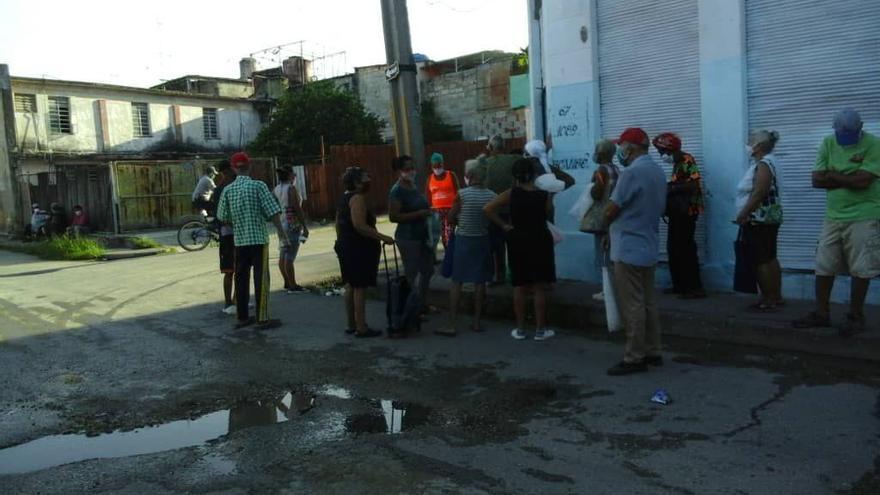
![]() 14ymedio, Lorey Saman, Mexico, 16 September 2020 — Dealing with the lines and fighting the resellers continues to be the obsession of the Cuban authorities. The application Portero and the multiplication of police officers and local guards at the doors of shops and markets in Havana, joins a new control mechanism: the application Cola.cu.
14ymedio, Lorey Saman, Mexico, 16 September 2020 — Dealing with the lines and fighting the resellers continues to be the obsession of the Cuban authorities. The application Portero and the multiplication of police officers and local guards at the doors of shops and markets in Havana, joins a new control mechanism: the application Cola.cu.
This application, launched on September 1, registers the customer’s identity card and creates a database with the date, place and products purchased, according to the official newspaper Granma.
The Provincial Defense Council said that it is already working in 86 stores in the capital’s municipalities and justified its use saying that it “guarantees discipline in access to food” and that it also serves to alert “about the use of false profiles on social networks attributed to personalities to generate discomfort in the population.”
The application prevents “the same people from buying certain products several days a week,” the authorities said. In this way, they say, “greater access will be allowed to those who have not been able to buy food or toiletries and the hoarding of basic necessities is avoided.”
The application, which was created at the José Antonio Echeverría Technological University of Havana (Cujae), also controls the mobility of capital residents, who are prohibited from acquiring basic necessities outside of their municipality of residence.
When it’s time to exert control, the agents have no qualms. A neighbor of Centro Habana testified how an old woman was not allowed to buy a product that a store was selling at that time. “When they asked for her card, they saw that it had an address in eastern Cuba and the police did not let her buy the package of noodles, which was what they were selling, one per person,” the man told this newspaper. “The poor lady could not buy her noodles and the police told her to go to the Government to complain.”
Although at the moment only the Provincial Defense Council works with the application Cola.cu, the municipal authorities will apply some measures in the coming days with the information provided by the new computer platform.
For months, the authorities have also used the application Portero created at the University of Informatics Sciences (UCI), which records what day a customer accessed a store and can warn if they behave like a reseller. Shortly after, the tool was updated and now works in connection with the police database, the criminal record database and even the National Tax Administration Office (ONAT).
____________
COLLABORATE WITH OUR WORK: The 14ymedio team is committed to practicing serious journalism that reflects Cuba’s reality in all its depth. Thank you for joining us on this long journey. We invite you to continue supporting us by becoming a member of 14ymedio now. Together we can continue transforming journalism in Cuba.
